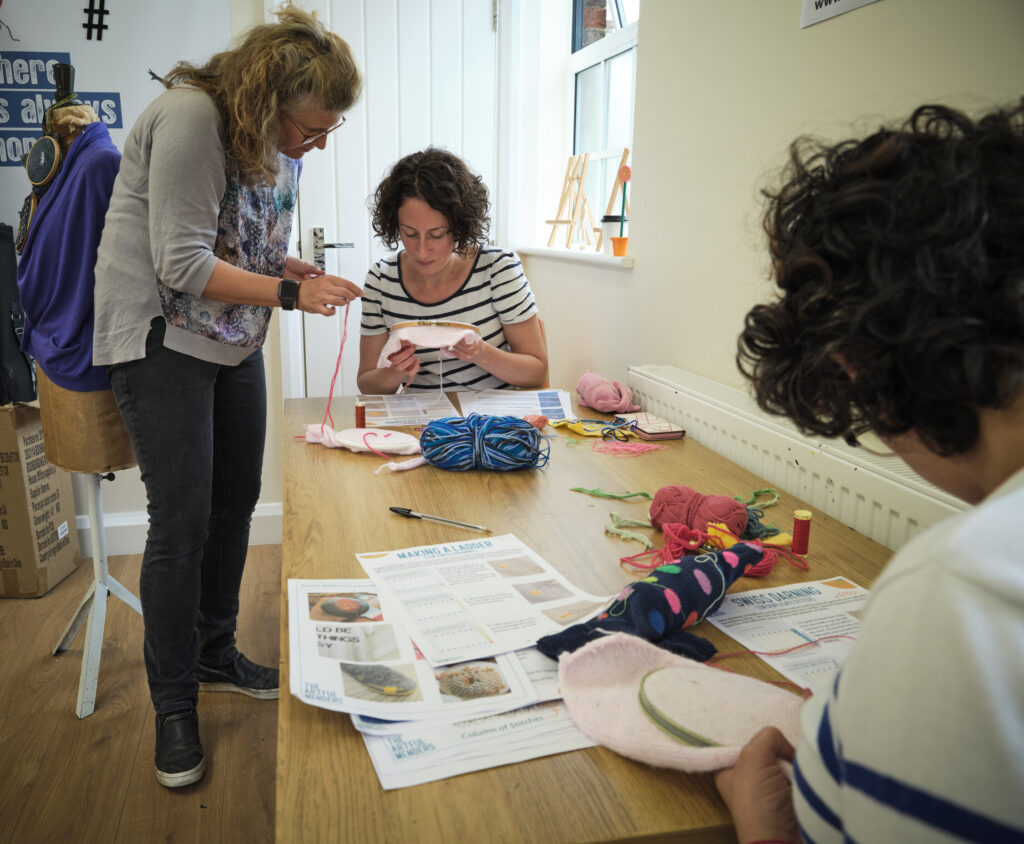
Women's mental health as we age
As we grow older, it’s essential to care for our mind just as we care for our body. Studies with women our age, born between 1946 and 1964, discovered some key ingredients to ensuring good mental health:
- Friendships and family: Having close connections makes us happy
- Feeling valued: Knowing that we matter and have a purpose gives life meaning
- Staying active: Physical activity isn’t just good for our bodies; it’s great for our minds
- Eating well: Nutritious meals help us feel good inside and out
- Faith and belief: Spiritual or personal beliefs can provide comfort
We talk about a number of these topics throughout this website. You can learn more about how we can protect our mental health through taking positive action in the areas of Social connection, Physical activity and Eating for women’s wellbeing – and, importantly, why we need equitable and fair systems in place to support women in looking after their mental health.
Interestingly, another study showed women tend to become happier after menopause. Why? Because many women retire from work, have fewer family duties, and finally have some ‘me-time’. Getting involved in community activities can bring additional joy.

And other good news? As the physical challenges of menopause pass, our mental health often gets a boost. Many of us feel more at peace and embrace getting older.
However, not all is rosy. Some challenges can harm our mental wellbeing:
- Ill health and disability: Facing health problems can be hard
- Money worries: Some of us struggle financially; many women earn less over their working life because of the gender pay gap or having spent years caring for family without pay (see our section on Finances and housing for more on this topic)
- Loss and grief: Living longer sometimes means we outlive close ones. Dealing with their loss or seeing them unwell can be tough
- Poor treatment: Ageism and elder abuse have long-lasting negative effects on mental health. And elder abuse is on the rise in Australia, if you would like to read more about this and learn about available support services, have a look at our section on Social connections
As we’ve shown in this section, mental health is closely connected to so many other issues that we face as we age. Continue exploring our website for more resources and advice.
Mental health and the LGBTQI+ community
Many older lesbian, bi and queer women, as well as trans and gender diverse folks, face more mental health challenges than other women their age. Some studies show that about 36% of LGBTQI+ women between 45 to 59 years have had mental health problems. And nearly one out of every five trans and gender diverse persons over 50 often feels depressed.
Why is this happening? Many older LGBTQI+ women have faced violence or hurtful actions, felt alone, or been treated unfairly just for being themselves. Some were pushed away by their families when they came out or when they transitioned (changing their gender). Many have experienced stigma, discrimination and institutional abuse by support services and do not feel comfortable disclosing their sexuality, gender identity and history. So, many people don’t know about their struggles, especially as they get older and need care.
But there is help! LGBTQI+ Health Australia offers a list of places that can support older LGBTQI+ folks with their mental well-being. These places are there for them, even if they need older-age care.
One example is Switchboard, based in Victoria, who offer a free volunteer visiting service for older lesbian, gay, bisexual, transgender and/or intersex (LGBTI+). And there are similar programs offered in other states.
You can watch this video with Jennifer Glenister, 82, who recently came out as bisexual, and who is using one of these services. One of the things she loves is having a connection with the LGBTQI+ community, which she would otherwise have found hard due to health issues that keep her at home.
Mental health and migrant and refugee older women
Many older women from migrant or refugee communities face challenges with their emotional wellbeing. The Victorian Multicultural Women’s Health service found that many older women from other countries faced some particular challenges:
- Being isolated and lonely
- Experiencing family violence
- Experiencing elder abuse
Many migrant and refugee women don’t speak English very well, and so might feel shy or unsure about joining groups or activities and might not be aware of all the help available. It’s important for the wider community to make sure older women from migrant and refugee communities feel welcome and get the help they need, like being able to use interpreter services.
Many older migrant and refugee women also care for family members without getting paid – sometimes they also have jobs. This can be very hard and can lead to tiredness and stress. It is important that our society provides the right resources to help.
There is support available. In Victoria, for example, the MCWH is a health centre aimed at meeting the needs of women from other countries. They have made videos in different languages to help women understand how to take care of their mental health, or to find support if they need it. Here is a video with Vietnamese words at the bottom, and they have many other languages on their website.
ANROWS (2020). Violence against women and mental health. Australia’s National Research Organisation for Women’s Safety, Sydney.
Bryant, Judd, F. K., & Hickey, M. (2012). Anxiety during the menopausal transition: A systematic review. Journal of Affective Disorders, 139(2), 141–148.
Critchley C (2017) It’s a fact: women get better with age. Pursuit, University of Melbourne, Melbourne.
El Khoudary, S.R., Greendale, G., Crawford, S.L., Avis, N.E., Brooks, M.M., Thurston, R.C., Karvonen-Gutierrez, C., Waetjen, L.E. & Matthews, K. (2019). The menopause transition and women's health at midlife. Menopause, 26(10), 1-15.
Feldman S, Radermacher H (2019) Vital conversations: giving older women in greater Melbourne a voice. Lord Mayor’s Charitable Foundation, Melbourne.
Kirkman M, Fisher J (2021) Promoting older women’s mental health: Insights from Baby Boomers. PLoS ONE. 16(1).
Kulkarni J (2018) Perimenopausal depression - an under-recognised entity. Aust Prescr. 41(6), 183-185.
LGBTIQ+ Health Australia (2021) Snapshot of mental health and suicide prevention statistics for LGBTIQ+ people. Sydney.
MCWH (2021) Submission into the Inquiry into Support for Older Victorians from refugee and migrant backgrounds. Multicultural Centre for Women’s Health, Melbourne.
Stathi, A., Fox, K. R., Withall, J., Bentley, G., & Thompson, J. L. (2014). Promoting physical activity in older adults: a guide for local decision makers. Avon Network for the Promotion of Active Ageing in the Community.





